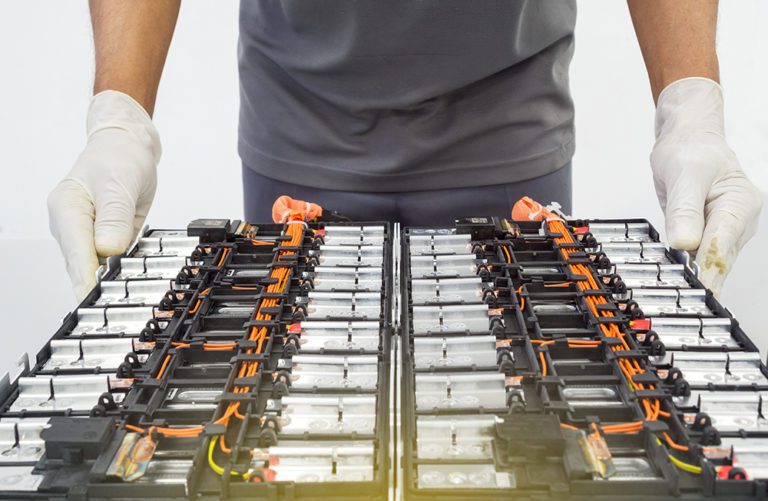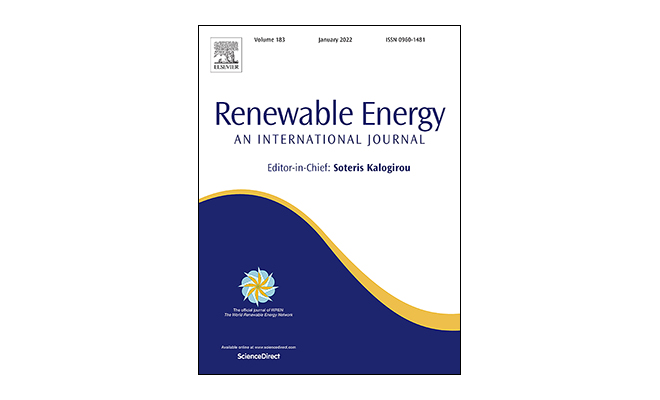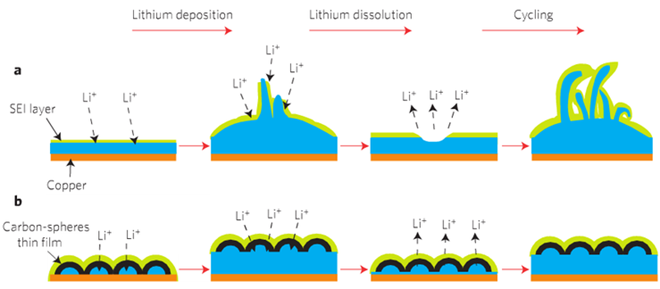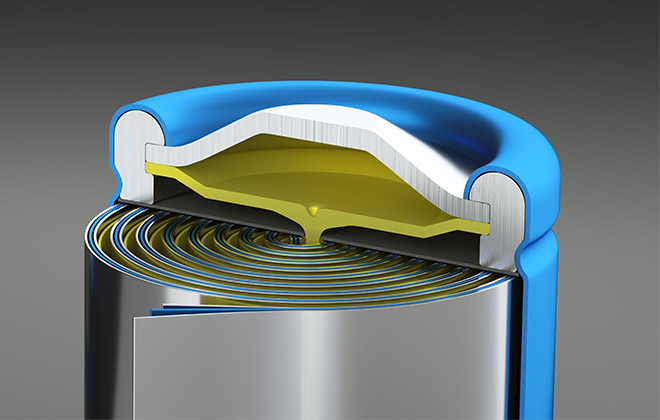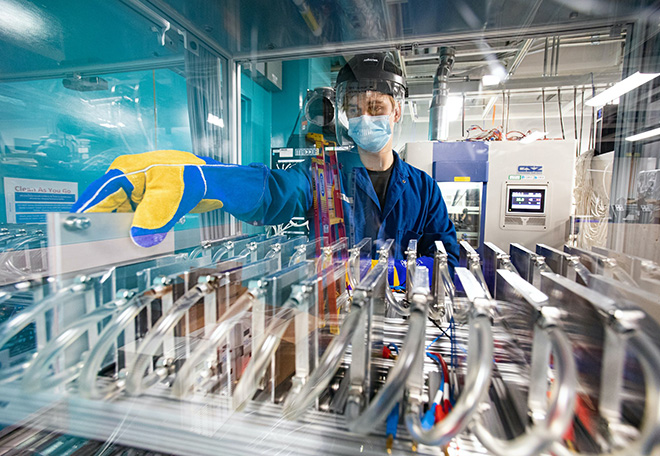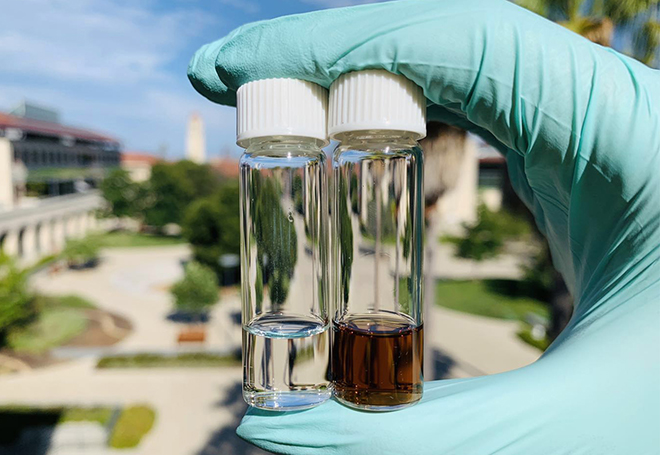Stanford University researchers have found a way to make lithium-ion battery packs last longer and suffer less deterioration from fast charging. In “Extending Life of Lithium-Ion Battery Systems by Embracing Heterogeneities via an Optimal Control-Based Active Balancing Strategy,” published in IEEE Xplore, the researchers explain how actively managing the amount of current flowing to each… Read more »
Search Results Found For: "Stanford University"
Stanford study: 100% renewable US grid is feasible and reliable
How many times this week have you read that renewable energy is unreliable, and will never be able to completely replace fossil fuels on the electrical grid? Well, there is at least one group of scientists who don’t agree. A study led by Stanford University Professor Mark Jacobson has found that a US energy system… Read more »
Stanford team develops stable lithium anode
Are the knights of nanotechnology closing in on the Grail at last? A team of researchers at Stanford University claim that they are, and have chronicled their deeds in the journal Nature Nanotechnology. The valiant engineers report that they have designed a pure lithium anode. “Of all the materials that one might use in an… Read more »
Stanford researchers design a wireless system that could charge EVs on the go
The Stanford team’s system can transfer 10 kW of power over a distance of 6.5 feet – enough to charge a car moving at highway speeds – and has an efficiency of 97 percent.
Amprius supplies batteries for solar cars competing in cross-Australia race
Amprius Technologies, maker of the Silicon Anode Platform for lithium-ion batteries, is supplying battery cells to the Astrum solar car, which a team from the University of Michigan will race in the Bridgestone World Solar Challenge in October. The Bridgestone World Solar Challenge requires teams to design, develop and pilot a solar-powered vehicle along a… Read more »
New paper shows atomic-scale closeups of how a lithium-metal electrode ages
Lithium-metal batteries, which use anodes made of lithium metal rather than graphite, could offer great improvements in energy density and weight. The DOE’s Battery 500 Consortium has set a goal of developing lithium-metal EV batteries with triple the energy density of today’s Li-ion cells. Now scientists at Stanford University and the SLAC National Accelerator Laboratory… Read more »
Machine learning could lead to durable fast-charging batteries
Scientists at Stanford University are harnessing machine learning (ML) to design better batteries. In addition to using ML to speed up scientific analysis by looking for patterns in data, the researchers combined it with knowledge gained from experiments and equations guided by physics to discover and explain a process that shortens the lifetimes of fast-charging… Read more »
Researchers develop novel battery electrolyte for lithium metal batteries
A new lithium-based electrolyte invented by Stanford University scientists could pave the way for the next generation of EVs. In a study published in Nature Energy, Stanford researchers demonstrated how their novel electrolyte design boosts the performance of lithium metal batteries. “Most electric cars run on lithium-ion batteries, which are rapidly approaching their theoretical limit… Read more »
New machine-learning method could supercharge EV battery development
Battery performance can make or break the EV experience, from driving range to charging time to the lifetime of the car. A team led by Stanford Professors Stefano Ermon and William Chueh has developed a machine-learning algorithm that could lead to longer-lasting, faster-charging batteries. For decades, advances in EV batteries have been limited by evaluation… Read more »
California Energy Commission awards $36 million for clean transportation projects
The California Energy Commission has awarded more than $36 million in grants for various clean energy transportation projects. The South Coast Air Quality Management District and Long Beach Harbor Department received $10 million each and the Los Angeles Harbor Department received $4.5 million to conduct field demonstrations of medium- and heavy-duty vehicles and cargo handling… Read more »







